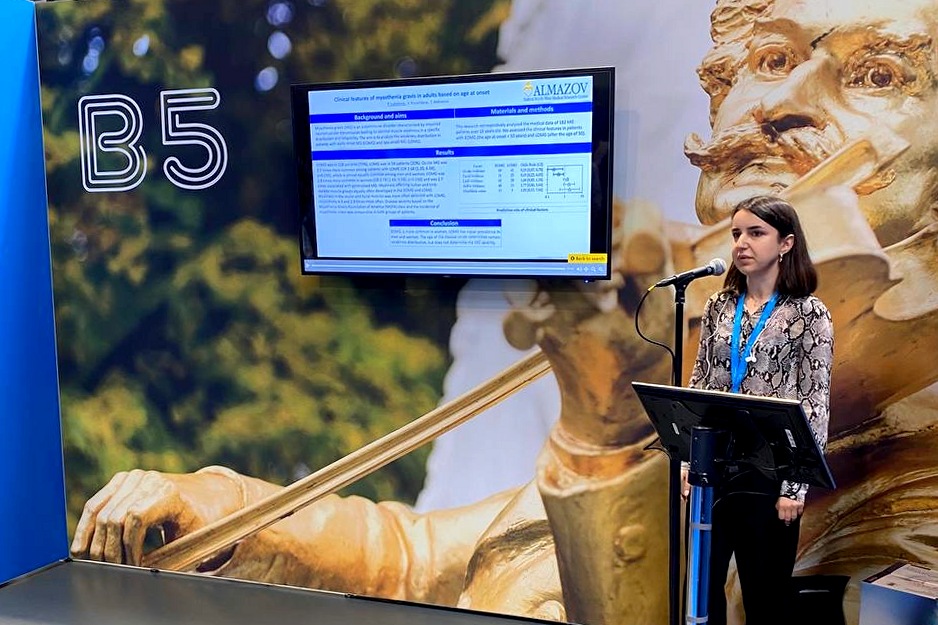
The 8th annual Congress of the European Academy of Neurology was held as a hybrid event from June 25 to 28.

The Department of Neurology and Psychiatry with Clinic of the Medical Education Institute traditionally presented its scientific results in a number of areas: neuromuscular diseases (Head of the department Tatyana Alekseeva), multiple sclerosis (Professor of the department Gennady Bisaga), cerebrovascular diseases (Associate Professor Maria Topuzova).

The following presentations were delivered at the Congress: «Clinical features of myasthenia gravis depending on the age of onset of the disease», «Autologous transplantation of hematopoietic stem cells in multiple sclerosis: intermediate results», “The role of biochemical markers in the early diagnosis of ischemic stroke”, which reported the intermediate results of research by 4 specialists of the department, 5 PhD students and clinical residents. The presentations sparked great interest among the attendees and triggered a substantive discussion with recommendations and comments from leading European experts.
Second-year PhD student of the department Patimat Isabekova attended many onsite sessions covering the most up-to-date data and the results of the latest research in the field of neurology, and also took part in training sessions on neuromuscular diseases.
Fourth-year student Ilya Potapov presented a study on the assessment of the clinical and social profiles of migraine patients treated at the Consultation and Diagnostic Centre in a poster in the Ethics in Neurology section.

The study used approaches that are quite unusual for the medical scientific community – methods of data collection used in qualitative research, such as questionnaires and focus groups as well as machine learning algorithms – data clustering. These methods made it possible to consider various «clinical personas» of patients with migraine. The «clinical persona» method is often used in the study of chronic diseases that have a substantial impact on a patient’s life. As a rule, these are congenital disorders or incurable diseases. However, in the case of migraine, this approach can be of significant benefit since the patient's clinical and psychological profile strongly influences their adherence to various types of preventive therapy, which must be taken regularly for a long time. There is an unspoken medical rule that “psychological compatibility” of the patient and the selected therapy is a key to successful treatment. This work laid the foundation for further scientific search for the most effective option of preventive therapy based on the patient’s psychological profile.

